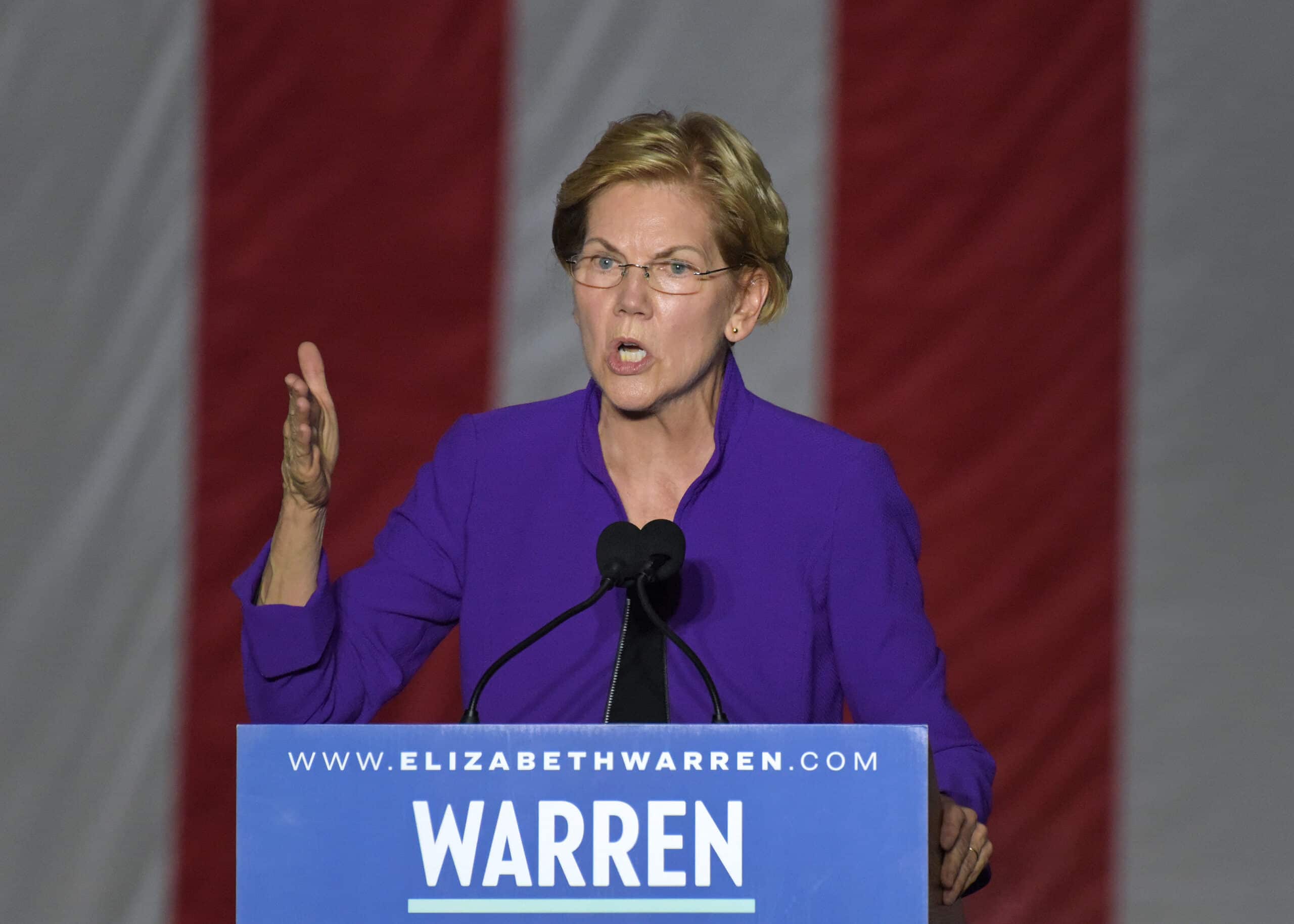The odds of Democratic Commissioner Caroline Crenshaw being confirmed by the Senate for another term are falling after her nomination became a political lightning rod in the Senate Banking Committee Wednesday.
Rather than waiting to put her confirmation to a vote in the Senate next session, progressive Democrats have decided to rush through a committee vote during the lame duck period, inflaming political tensions. The vote would bring Crenshaw’s confirmation to the floor of the Senate in the hope that Members of Congress confirm her before the session ends. This strategy, sources say, is partly the product of the power Senator Elizabeth Warren gained over the Democratic SEC commissioner selection process, which we reported on last week. However, it is also partly a political test of Warren by Senate Majority Leader Chuck Schumer, who faces pressure from progressive lobbying groups to bring a vote to the floor.
Three lobbyists who spoke to Unchained said that because of the last-minute push, they did not expect Senators to cooperate in confirming Crenshaw before the end of the year. Republicans have long been hesitant to confirm Crenshaw, frustrated by her stance on both crypto as well as Environmental, Social, and Governance (ESG) reporting, and the push has only further politicized her confirmation. Crypto groups have also sprung into action to fight her approval in the Senate, launching advertisements that criticize her intolerance of the industry.
“This [nomination] vote is a Brown/Warren political ploy,” said Paradigm VP of Government Affairs Alexander Grieve on X. “It’s a middle finger to Rs, Schumer, and Crypto.”
Read More: Warren Will Have Significant Say in Selecting the Democratic SEC Commissioner
How Crenshaw’s Re-Nomination Became High Stakes
After Commissioner Jaime Lizárraga and Chair Gary Gensler announced they would step down from the SEC in January, pressure was put on the Senate to confirm at least one Democratic commissioner as soon as possible.
The law states that no more than three commissioners of the same political party can serve on the commission, and after Trump announced he would nominate Republican Paul Atkins to serve as chair, he, in addition to existing Commissioners Hester Peirce and Mark Uyeda, take up all three Republican slots. Typically, the other two spots on the commission would be filled by Democrats.
Meanwhile, Democratic commissioner Caroline Crenshaw’s term expired in June, and her nomination to serve another term by President Biden went unconfirmed by the Senate largely due to Republican resistance. She currently serves on the commission under an unusual extension granted to commissioners for exactly this type of situation, though she has to be replaced by the end of 2025.
If both Democratic vacancies went unfilled until inauguration, Trump would have had to nominate non-Republican commissioners. In an awkward scenario such as this, the protocol is typically for the Senate leader of the opposing party — in this case, Schumer — to recommend to Trump who to select.
In return for Trump nominating the Democrat Schumer recommends, Schumer would then make sure the Senate Democrats he leads would confirm Atkins. But as we reported last week, Schumer was giving Massachusetts Democratic Sen. Warren a lot of say in who those Democrats should be.
Read More: Democratic SEC Commissioner is Stepping Down, but That Doesn’t mean Trump Will Get 2 Outright Picks
How Schumer Is Testing Warren
Schumer is deferring to Warren for two reasons. First, Warren will be Ranking Member, or senior Democrat, on the Senate Banking Committee next year and the Senator in that position has the de facto role of being a thought leader on Democratic financial policy. Second, sources connected to elected officials (three more of whom have confirmed this calculus to Unchained in more detail since we originally published) said that Schumer was making a political gamble.
One possibility is that Warren would either moderate herself and convince other leftist Democrats, like Sherrod Brown, to let the Democratic SEC commissioner selection process go smoothly by waiting until next session and perhaps even nominating someone more moderate than Crenshaw.
If she couldn’t (or refused to), Schumer is betting a more radical plan would fail, and Warren would lose the power she currently commands over some of the more left-leaning members of the Democratic party for her mistake. As one source colorfully put it: Schumer is giving Warren “enough rope to hang herself.”
The Progressive Dems’ Bet
Five of the six total sources who were available to talk before publication said Democrats’ rush to put Crenshaw’s confirmation to a vote before the end of the year is, in part, a product of this political calculus. Warren is leading the push with outgoing Senator Sherrod Brown, who will be replaced by Republican Senator Bernie Moreno after pro-crypto political action committee Fairshake poured over $40 million into ousting him and so who has a bone to pick with crypto.
Some Democrats (presumably Warren and Brown), are also concerned that they may not have the opportunity to confirm a Democrat at all next session if Trump goes off-script. Because the law does not require a balance of Republicans and Democrats but rather says that “no more than three commissioners may belong to the same political party,” it’s possible that Trump would ignore Democrats entirely and nominate independent commissioners (an idea he flirted with under his first administration).
Republicans technically will have the power to confirm commissioners without Democrat cooperation because they will control a majority of the Senate next year, though sources who spoke to Unchained said too many of them would be concerned about preserving established protocol to go along with Trump’s plan.
The Senate Banking Committee was scheduled to vote on whether to advance Crenshaw’s confirmation to the Senate floor on Wednesday, and was expected to do so along party lines. However, the vote was blocked on procedural grounds which require Republican members to cooperate in waiving a restriction on the amount of time committees can meet.



